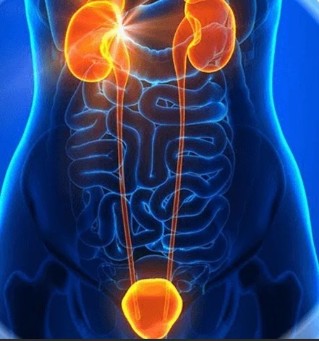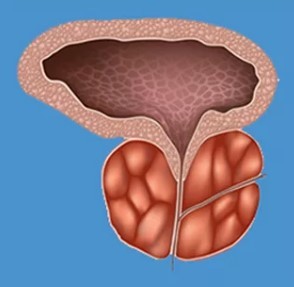Most of us are accustomed to, you will need to carefully monitor the health of your heart, caring for the health of your lungs. There are, however, some of the men, don't forget to pay special care to the needs of their "second heart" - the prostate gland.
It is a small organ, about the size of a walnut. Where is it and what does it mean, knows not even of any man. But it is often one of the most significant causes of the health problems that the male half of humanity. In addition to this problem, you can get ahead man, and the elderly in the "elderly".
Like any other disease, an inflammation of the prostate gland is the most common disease of the prostate is easier to prevent than to cure, and is easier to treat early than in the later stages. Therefore, it is essential that every man know of the heart, the symptoms of which is approaching that of the disease, it may be in time to see the urologist.

The Prostate gland or prostate is a musculo-glandular organ that is part of the reproductive system in males. It is located in the pelvis, below the bladder, it weighs only about 20 to 30 grams. The main function of the prostate gland, to speak in plain language – for the manufacture of a liquid in which it is a part of the seed.
In spite of the modest size (the size of a small chestnut), and this little piece of iron, you can overcome all of the Hercules.
As pointed out by the world health organization (who), every third man from among the inhabitants of the countries of Europe and the united states have symptoms of the inflammation of the prostate gland. A fifth man has a chronic prostatitis.
Adenoma of the prostate, which is similar to the with prostatitis symptoms, it is diagnosed in 10-15% of all men over the age of 50 years. The figures, which are of particular concern due to the increasing number of diseases of the prostate gland in younger men, especially in the chronic form, and the form, which leads to infertility.
For the purchase of an inflammation of the prostate gland is easy to use, but it is the treatment for a number of years.
Urologists and andrologists – doctors who treat prostatitis, it is often called the disease is a "silent disease" because in the beginning, you may not express his or her existence. When the disease is noticed, as a rule of thumb, we are talking about the complications of inflammation of the prostate gland.
Every patient is different in their own special course of the disease, and the causes of its occurrence.
The cause of the disease prostatitis
Prostatitis is an inflammation of the prostate gland. The main cause of the disease is a stagnation of blood in the pelvis. This can lead to a disorder of the gastrointestinal tract, which is manifested in the form of frequent constipation, and intestinal disorders. Among other things, for the following reasons:
- the body's immune system dysfunction;
- Sexually transmitted diseases, and other infectious diseases.
- inadequate circulation of blood to the penis;
- irregular sexual life,
- neuroendocrine abnormalities in the body.
The symptoms of prostatitis
The characteristic symptoms of inflammation of the prostate gland is a disorder in the functioning of the urinary tract. The reason for this is that, while it is an inflammation of the prostate gland increases in size and begins to squeeze the urethra. If it is left untreated, the inflammatory process causes sclerosis of the bladder neck, and in the case of a more severe development of the disease, the ureter may be completely blocked.
Another important characteristic symptom is disturbance of the sexual function. This is shown in the form of a weakening of erection, weak orgasm intensity. The result is impotence and infertility.
The other typical signs of prostatitis:
- a burning sensation in the perineum, and the urethra (the urethra);
- discomfort in the prostate and in the bladder after emptying of the bowel (defecation);
- more frequent and increased intensity of urination;
- problems, and intermittent urination;
- discharge from the urethra pee bowel movement;
- urine noticeable floating "or";
- there have been a long time in the night, unexplained erection;
- the acceleration of ejaculation during intercourse;
- effacement it;
- the increase in the General fatigue;
- depression, anxiety, mental anguish waiting for the complications;
- the deterioration of an erection.

All of these symptoms are immediately visible. So don't expect just a "bunch of", as in, only seen one or two of the symptoms described above, just go for it. They do not consult with your friends, don't self-treat, as each has its own symptoms and its own course of the disease.
Over a period of time may be other symptoms. Experience:
- the pain was excruciating, on the basis of the root of the penis;
- pain in the testicles;
- the pain is in the perineum.
Among the later symptoms may include doctors, including infertility, in which sperm are produced, however, is the loss of their mobility.
Bolster the pain pain it can be mentioned that in the prostate formed of rocks. To get rid of them is much more difficult, as the stones in the kidney or even gall bladder. Once detected, the doctor may use medications to slow their education and to continue to improve on the present.
Often to the urologist used in the stage, while prostatitis affects the work of other organs and systems. In this case, we have, in order to treat, and other professionals.
That is, the risk of getting prostatitis?
The risk groups are men who:

- leading a sedentary life-style;
- the representatives of the professions where you have to sit for 8 hours or more in a row;
- we can see that they have a chronic constipation;
- transmitted infectious diseases of the musculoskeletal system and connective tissue;
- do not lead a regular sexual life;
- they are promiscuous;
- they suffer from alcoholism.
The diagnosis of inflammation of the prostate gland
For an accurate determination of the stage of the disease, and prescribe an appropriate treatment will be carried out for diagnosis, including the following:
- a clinical examination;
- a blood tests;
- urine;
- the analysis of prostate secretion;
- Such as an ultrasound;
- uroflowmetry.
What are the medications treating?
At the end of the diagnostic tests, the doctors usually prescribed a complex treatment, which includes the following:
- the treatment of the body's immune system;
- the treatment of the infections, if any at all, it will be possible to identify, usually, with antibiotics;
- anti-bacterial drugs for the treatment of any disease of the prostate.

For the treatment of prostatitis there are various physiotherapy treatments, such as the following:
- massage;
- magnetic resonance therapy;
- the treatment of the laser;
- reflexology;
- such as an ultrasound;
- hirudotherapy.
The prevention of, and diagnosis of prostatitis
Any person under the age of 40 years only for the sake of his health, for men, every year to carry out a review of the urologist. After 40 this should be done every six months.
Over a period of time it is not cured, or running to the inflammation of the prostate gland, it can lead to a number of the above-mentioned problems, which can seriously complicate your life, not just sex.
The main preventive measure is, of course, the banal maintaining a healthy way of life. And, because the blood stagnation in the pelvic organs is one of the most common causes of the disease, it is necessary for all forces to be compensated for the take a seat, and sit down to work, with physical exercise, active rest.
It is important to avoid hypothermia, and to conduct a regular sexual life.
























